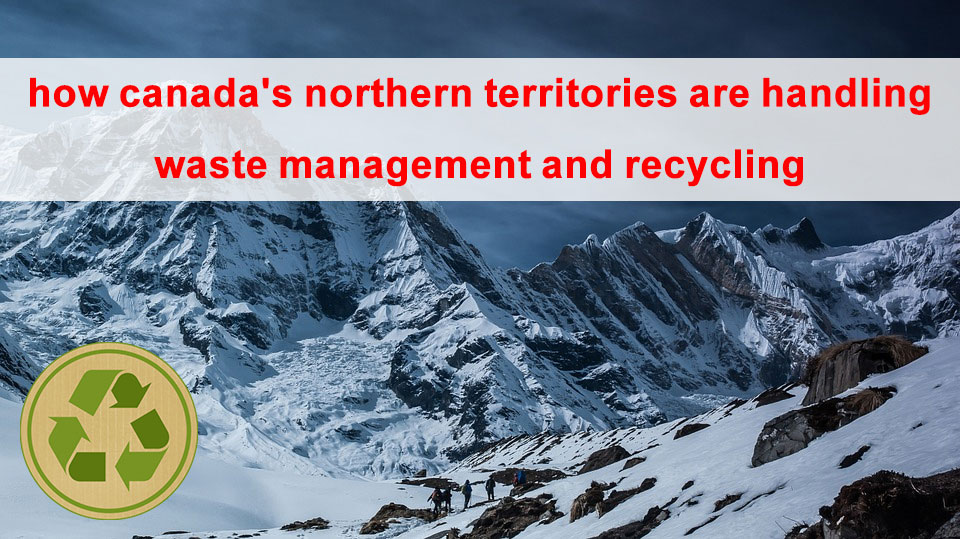How Canada’s Northern Territories are Handling Waste Management and Recycling

The Northwest Territories, Nunavut, and Yukon are managing certain aspects of waste arguably better than major cities however they still have a long way to come. In some respects, there’s great opportunity in Canada’s north to prove the concept of a ‘circular economy’ achievable.
A ‘circular economy’ is a waste management strategy wherein 100% waste diversion is attained and all waste is reused in some way. The ongoing challenge here is although Canadians divert more than nine million tonnes of recyclable waste from our landfills, there’s still struggle in consumers and businesses to adapt.
Collecting, sorting, cleaning, and repurposing waste is a system that should be evaluated. Canada’s northern territories are one place we might be able to look to for inspiration and potential.
Electronics
The NWT government introduced electronic waste disposal fees in 2016, as a strategy to divert electronic waste from landfills. The average cost per load to transport electronic waste in the Northwest Territories is $5,000 to $8,000 – depending on the community. Electronics recycling programs here were modelled after Alberta and Ontario. For example, Ontario has similar environmental handling fees. Through this system, NWT has been able to increase electronics recycling and lower their electronics waste.
Tire waste
NWT and Nunavut are the only two regions in Canada which don’t have tire stewardship programs. Some tires are sent directly into the landfill while others are stacked. Evidently, stacked tires are prone to mosquitoes, water pooling in them, and should they catch on fire, have the potential to release toxins into the air resulting in health and safety hazards. NWT has been successful at diverting beer and wine bottles from landfills by applying a fee at the point of purchase. A similar recommendation is being given on tires.
Organic waste
The third category of waste we would like to focus on is organic waste in Canada’s north which takes up costly space when sent to a landfill. To build additional landfill disposal cells in a city such as Yellowknife, the cost is approximately $3.5 million per cell. Needless to say, it’s very expensive. Subsequently, it’s believed more than 40 percent of household waste in these areas is compostable organics. Unfortunately commercial waste processing fees do not line up to incentivize the composting of organics resulting in more organic waste being sent to the landfill than necessary. In response, we believe a more thorough fee system applied specifically around organic waste and mixed waste could be an initiative to examine.
What to do about Canada’s North
When discussing Canada’s waste problem, the north is oftentimes forgotten about. Notwithstanding, there’s a lot to work on in NWT, Nunavut, and the Yukon as it pertains to cleaning up the waste management practices applied here. With so much beauty maintained in these areas, it would be a shame to see it be negatively impacted through expanded landfills and waste or recycling programs which don’t incentivize enough. For the most part, a lot of the discussions on how to best implement initiatives like these in Canada’s north would be to use consumer and commercial fees primarily on purchase.
Core Mini Bins is a Toronto waste management company. As a company overseeing the GTA, we’re passionate about recycling and serving the environment here. We hope Canada’s north can implement some of the initiatives that are helping Ontario and other provinces move increasingly towards a circular economy.


